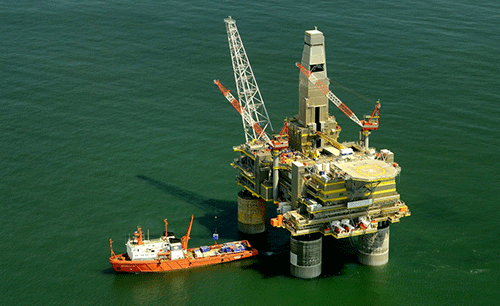The deep-water Orange Basin of f shore Namibia, where TotalEnergies and Shell last year confirmed the largest oil discovery of 2022 with the detection of light crude oil, is becoming a more attractive destination for global oil explorers. This is as independent French oil company specialising in the production of hydrocarbons, Maurel & Prom, is set to join the scuffle for black gold with the commencement of a potential five-well drilling campaign in the vicinity in 2023. This is as wildcatting fever continues to grip this increasing hot spot for global exploration.
Wildcat drilling is described as a form of high-risk exploratory drilling for oil or natural gas in unproven or fully exploited areas that either have no concrete historic production records or have been completely exhausted as a site for oil and gas output.
Maurel & Prom is expected to spud its Aurora wildcat this year, which is further out in the sea (about 190km from Walvis Bay) and in relatively shallower waters (1250m). Despite the differences, industry insiders explained that geologically, the Aurora well could be similar to the Venus well where TotalEnergies confirmed its discovery. This is because Aurora is located in the licence block just above TotalEnergies’ 2913B block, meaning if the exploration well does indeed uncover commercial volumes of oil, it is expected to be quite significant. Shell’s Graff discovery was made in an exploration well drilled simultaneously to Venus.
According to online publication, Upstream Online, Maurel & Prom plans to spud its debut well this year in just over 1000 metres of water. This is as Shell and TotalEnergies are also scheduled to commence major appraisal and exploration drilling campaigns this year to determine the extent of their huge Graff and Venus discoveries in the Orange Basin, while other players in the area, such as Chevron and BW Energy are also refining and accelerating drilling and seismic survey plans.
Meanwhile, Sintana Energy Inc also confirmed a recently approved extension to its Petroleum Exploration Licence 87. According to a statement, the mines and energy ministry in December last year granted a second one-year extension to the current, first four-year Initial Exploration Period associated with PEL 87 located in Orange Basin. Sintana Energy is a Canadian oil and natural gas exploration company.
“The revised initial exploration period will now expire in January 2024. Three additional periods totalling six years are available after the current period, with further possible extensions thereafter. The extension will be used to conduct several operations, including an extensive 3D seismic survey,” the statement from Sintana reads.
PEL 87 includes a 2 400 square kilometre area that has been mapped and has been confirmed to contain similar geologic characteristics with TotalEnergies’ Venus oil discovery.
Sintana maintains a 7.4% indirect, carried interest in PEL 87. The other working interest owners include National Petroleum Corporation of Namibia (Namcor) owner of 10% and Pancontinental Orange (Pty) Ltd, the operator and owner of a 75% interest.
Moreover, industry experts have described the Orange Basin geology as good where the oil quality is light and not too sulphurous, and where Shell and TotalEnergies stand to receive returns on investment in a relatively short period from their giant discoveries. As such, the recent discoveries rank highly in both majors’ global portfolios, where they have quickly followed up initial discoveries with back-to-back exploration and appraisal drilling.
According to Namcor CEO, Immanuel Mulunga, Shell’s discoveries to date are “more complicated because they will have to produce from multiple fields”. This is as Shell has started drilling the Jonker well to check for a possible eastern extension of the Venus find. If this field is proven to be in communication with Venus, then a unitisation agreement with Total would be necessary.
Meanwhile, both Shell and TotalEnergies have not divulged the potential resource size, citing too many variables in play. Shell previously stated the deepwater Orange Basin barrels were among the least carbon intensive in its portfolio, giving them added resilience through the transition.
Shell CEO, Ben van Beurden, has reportedly spoken highly of the potential in Namibia, among other frontier areas, and the country’s willingness to develop resources that the world “desperately needs”.
- ebrandt@nepc.com.na


